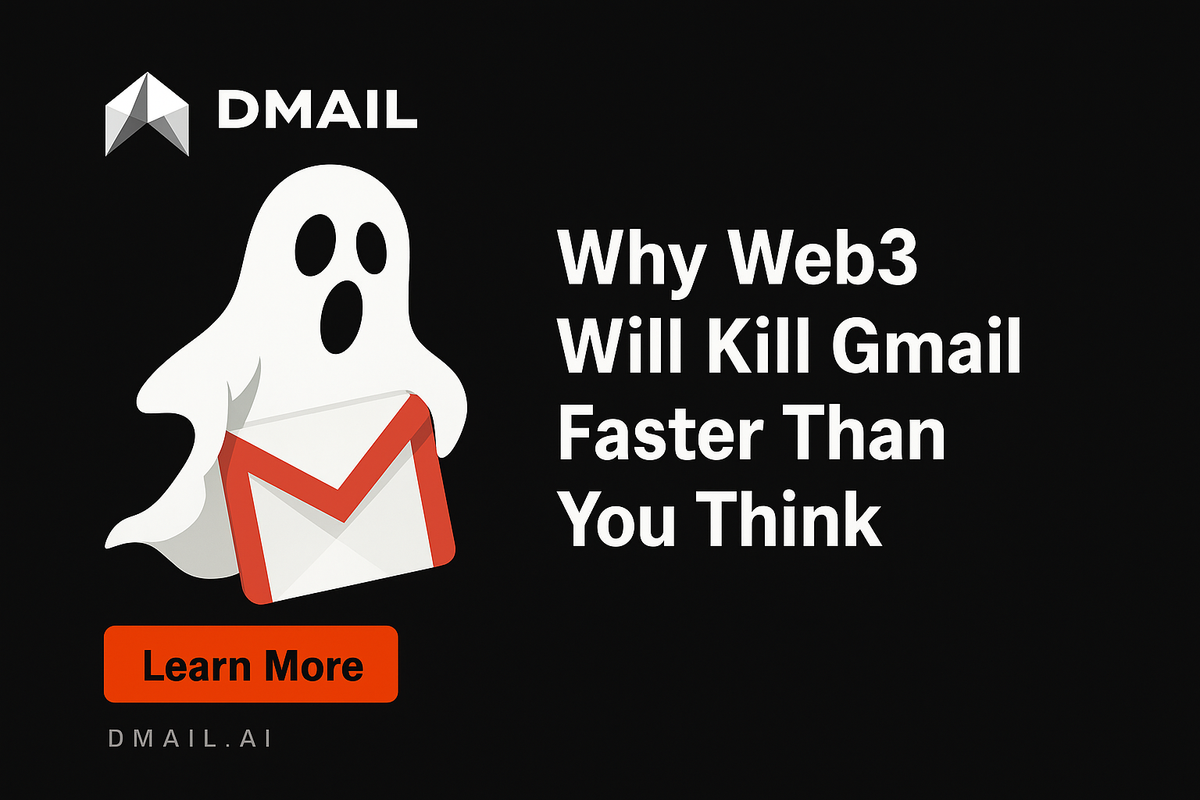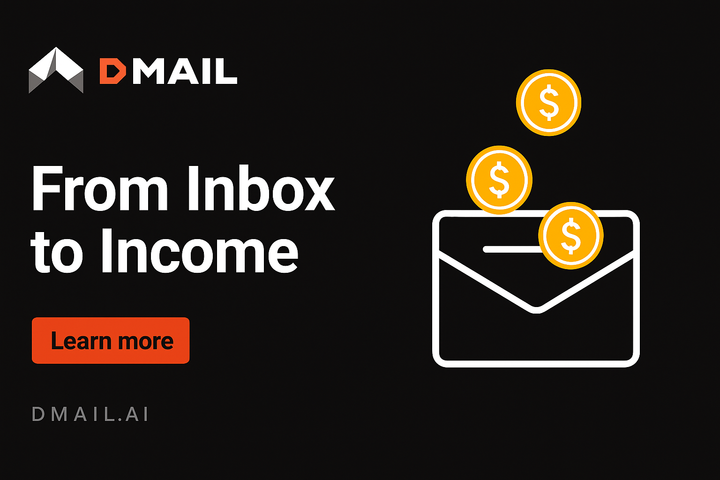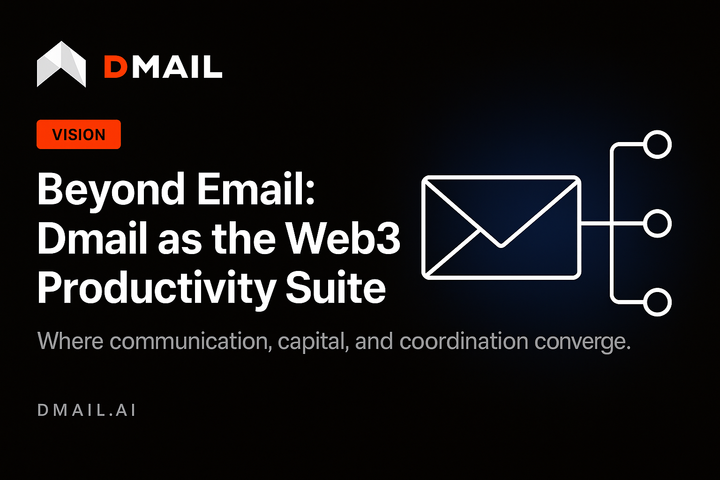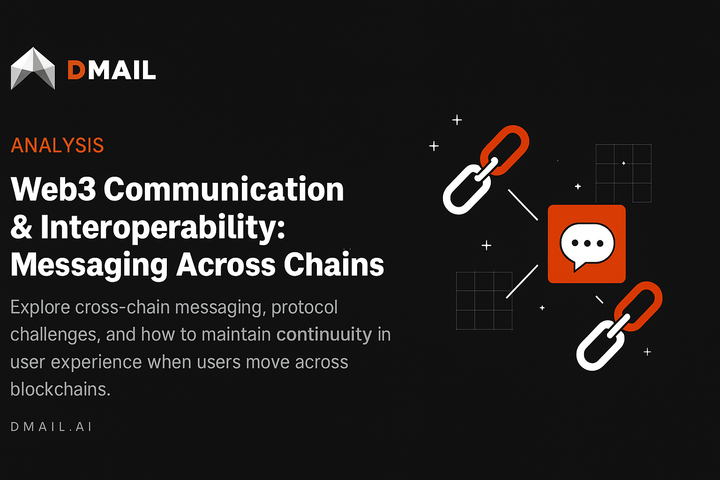The End of Email: Why Web3 Will Kill Gmail Faster Than You Think
The future isn’t about sending mail. It’s about owning your voice.

The Empire of the Inbox Is Crumbling
For twenty years, centralized email has ruled the digital world — a fossilized empire built on data extraction and behavioral advertising.
Gmail, Outlook, and their clones haven’t innovated in a decade. Their entire business model depends on you not noticing how much of your time, data, and privacy you’ve been giving away.
- Spam makes up 45% of global email traffic.
- Ad algorithms read every message you write.
- Your data is stored in opaque servers you’ll never control.
- Your inbox is an unpaid billboard.
This isn’t communication. It’s surveillance wrapped in convenience.
And users are finally waking up.
Email Is Centralized Control Disguised as Convenience
Gmail gave us “free” access in exchange for total surrender of digital autonomy.
Every click, every message, every attachment — indexed, analyzed, monetized.
The result?
A trillion-dollar data-mining empire built on the illusion of connectivity.
You don’t own your messages. You rent them.
You don’t have an identity. You have a username.
You don’t send private mail. You send ad-targeting metadata.
Web2 email is dying not because of inefficiency — but because its economic model is incompatible with digital ownership.
Enter Dmail: The Web3 Communication Layer
Dmail flips the equation.
Instead of being mined for data, users own their messages, identities, and communication channels. Instead of ad revenue, the network runs on tokenized participation and decentralized economics.
Every Dmail account is:
- A wallet-based identity (not a username).
- A private communication channel (not a data funnel).
- A yield-bearing asset (not a liability).
Messages are encrypted, stored, and verified across decentralized nodes — not harvested by centralized servers. You decide who can contact you, under what terms, and with what incentives.
The result?
A permissionless inbox that’s sovereign, interoperable, and financially aligned with its users.
Why Gmail Can’t Compete
Big Tech cannot pivot. Their infrastructure — and profit — depends on centralization.
Every innovation that empowers the user threatens their core business model.
Web3 platforms like Dmail don’t need your data. They reward your participation.
They don’t sell your attention — they tokenize it.
Compare the models:
| Model | Legacy Email (Gmail/Outlook) | Web3 Messaging (Dmail) |
|---|---|---|
| Data Ownership | Controlled by Google | Owned by user |
| Revenue Source | Ad monetization | Network staking and token economy |
| Privacy | Read, mined, profiled | End-to-end encrypted |
| Spam | Free to send | Requires staking/fee |
| Identity | Email address | Wallet-based identity |
| Interoperability | Locked ecosystem | Cross-chain compatible |
| Incentive | Zero | Earn for participation |
In short: Gmail’s moat is user inertia.
But as blockchain UX becomes frictionless — that moat evaporates.
The Inevitable Collapse of Centralized Communication
Every technological revolution replaces an old empire with a new trust model.
Postal services gave way to email. Email will now give way to on-chain communication — messaging that’s as portable, verifiable, and secure as the assets it carries.
The shift isn’t just technical — it’s ideological.
- From surveillance capitalism to sovereign ownership.
- From free-for-all spam to staked, accountable access.
- From data silos to networked composability.
In the Web3 world, communication itself becomes an asset layer — with embedded value, yield potential, and programmable rights.
The inbox becomes part of your digital portfolio.
The Death of Email Is the Birth of Freedom
Dmail isn’t just an app — it’s the protocol that ends the monopoly of Gmail-like systems forever.
By anchoring identity, privacy, and value on-chain, it redefines what communication means in the digital age.
The future isn’t about sending mail.
It’s about owning your voice.
Because the next time you hit “send,” it shouldn’t enrich a trillion-dollar corporation.
It should empower you.

Connect with Dmail: Website | Twitter | Discord | Github | Telegram





Comments ()